Dogs and Kids (Never Thought I'd Say It)
I was kind of misleading when I said I was working "full-time" at an internship. I'm working 5 hours, one day a week, which is the amount of time required for the class that I am taking in conjunction with it.
I am not a "kid-person." Historically, I've had a ton of trouble relating to them. (And don't even get me started on the months-olds; I have no experience with infants, and the thought of holding a baby in my arms pretty much terrifies me. I think I have a slight phobia.) But really, yesterday was kind of cool. At my internship, I'm working in a group setting with kids (ages 4 to 8) who have been affected by substance use in their families (parent, sibling, etc). This week was my first time with them.
Of course, I can't say too much about it, because there is a big fancy word called C-O-N-F-I-D-E-N-T-I-A-L-I-T-Y. I mostly observed the group, since I'm still new, but I really realized that I already know a good deal about the things that I'll face as I help them work to overcome the things that are bothering them... because they really aren't that much different than dogs.
That's not an insult. In fact, it's probably a compliment, and, at the very least, a testament to just how powerful learning mechanisms are.
Here's some food for thought (infused with pictures from Marge's early morning walk this week for your visual pleasure):
When they're messed up, it's because someone else messed them up.
Why do dogs have behavioral problems like fear, aggression, and anxiety? Many times, it's because something set those things off. Living in a cage. Being abused. Having to fight for resources. Growing up without littermates or parents. Getting sick. Even if we go to the biological level and say that fear/anxiety/aggression may have a genetic base, it is many times a person who makes the decision to breed two ill-temperamented dogs and brings a litter of puppies in to this world with a disadvantage.
So, just the way I believe that the environment in which a puppy lives is extremely critical to their success as an adult dog, the same goes for people. Kids don't just wind up with behavioral problems; their environment plays a huge role in what they're like. Family situation. Money situation. The larger social/political/economic context of the time in which they live. The neighborhood. The food they eat. Where they sleep. Witnessing violence. You get the idea.
When they're messed up, they all respond differently.
Some dogs could be beaten over the head with a baseball bat two hundred times and still wag their tail when ever they meet a new person. Others will develop terrible anxiety and fear as a result of it. Still others will become reactive and/or aggressive.
Each one of the kids I saw yesterday had their own way of coping with the difficulties in their life. One was hyper, talkative, and clownish. Another was completely stoic and seemingly unaffected to the point that it was actually a little scary. And, the last was pretty much "normal," if not maybe a bit on the emotional side. I would have never guessed it. All along, I thought that kids were all just crazy little people, without ever really thinking about it.
They're annoying. Irritating. Make you want to rip your hair out!
There have been plenty of times where I've been frustrated by a dog's behavior. Whining. Barking. Lunging. Inappropriately-timed zoomy fits. It's inevitable that we'll sometimes feel stressed out about it.
Now, I wouldn't be a good candidate for this internship if I was already feeling that way, after so few sessions. (I'm certainly not!) But, I can see how it'd be frustrating to deal with a kid who can't sit still, or talks at the wrong time, or swears, or won't follow directions, or won't open up to you. Understanding the "WHY" behind these behaviors is essential (see Point #1, of course) in having some empathy with them and patience for them.
Operant techniques work with them (when you're teaching voluntary, non-emotionally based behaviors, of course).
We reward when we like something; we withhold or take something away when we don't like something. That's how I train my dog, anyway. And it works, because it makes a behavior more likely if we're using a reward that's reinforcing enough.
There was plenty of operant conditioning going on yesterday. Kids got a prize at the end of their group session if they were well-behaved (positive reinforcement). Kids could not get a prize if they had acted badly during the session (negative punishment). Kids were given time-outs for bad behavior (punishment, positive or negative depending on how you look at it). Since they knew these rules in their head, there were very few problems and they were, for the most part, well behaved.
Structure works with them.
Dogs with behavior problems like to know what's coming next.. it minimizes anxiety. This makes schedules and structure work so well for them. If they can be certain that the scary man on the street is NOT going to approach them, ever, under any circumstance, they may feel better about walking in close proximity to him. If they know where they're going to dog training class, who will be there, and what they'll be doing, they may be less reactive. Walking at the same times, taking a nap in their crate each evening, it all plays a role. Making life predictable for dogs who have faced so much unpredictability is a good thing.
As I've learned, the same goes for kids with issues. The kids in this group know the exact structure of their meeting. It never changes. The content may change (books, arts and crafts, etc.), but the format does not. The reasoning behind this is exactly the same; if their life at home is filled with turmoil, they may very well be eating ice cream for breakfast and watching their parents get high before they go to bed. A group therapy session like this may very well be the only structure that they have, for one hour a week.
They're cute.
Yeah.. this one's self explanatory. What's better than a fuzzy, four-legged animal whose favorite pastime is licking your face?
And, well.. you won't see me opening a daycare or applying to teach Kindergarten anytime soon, but I have to admit, the kids were cute and sweet. Especially the one who did a Steve Urkel impression.

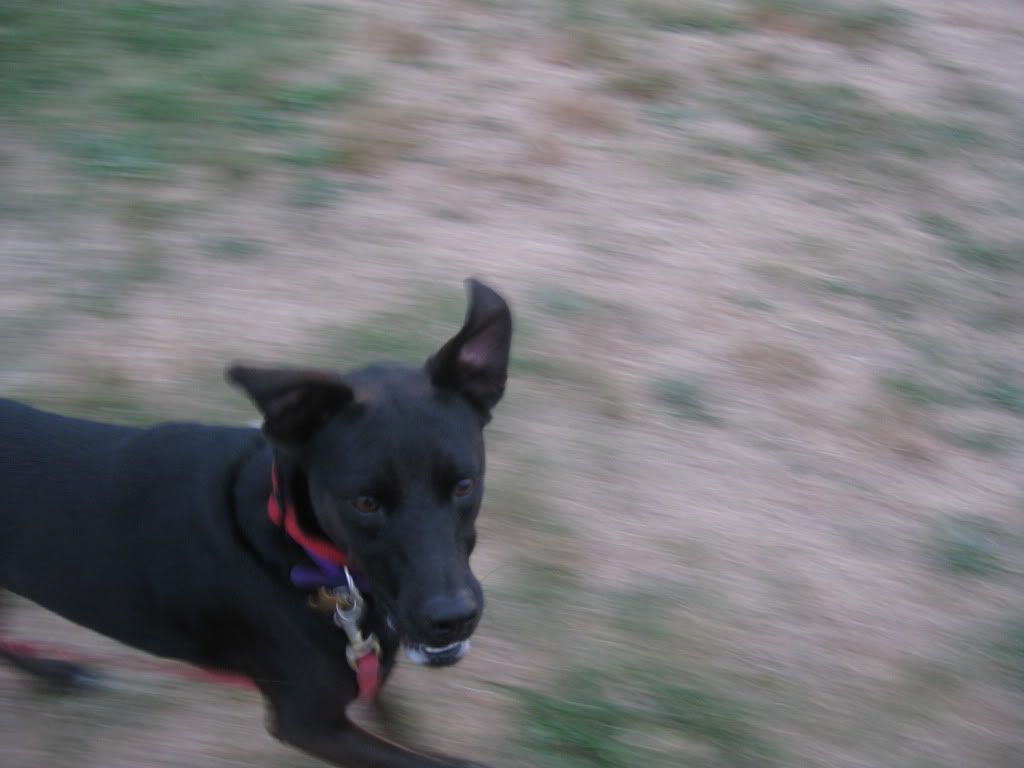
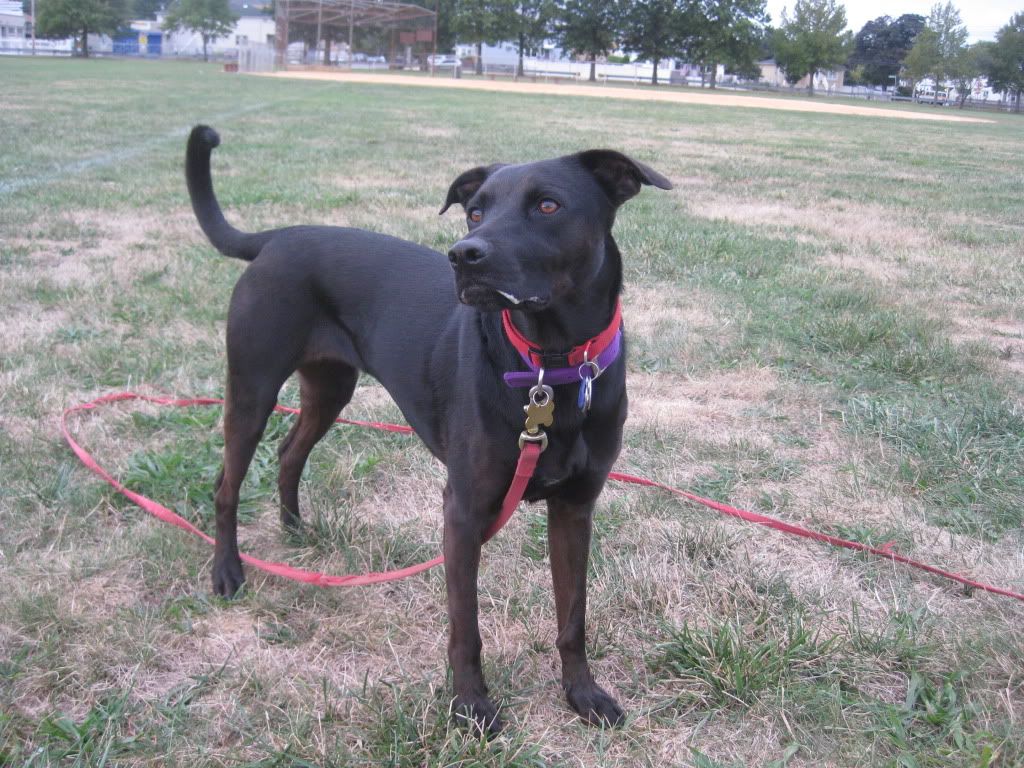
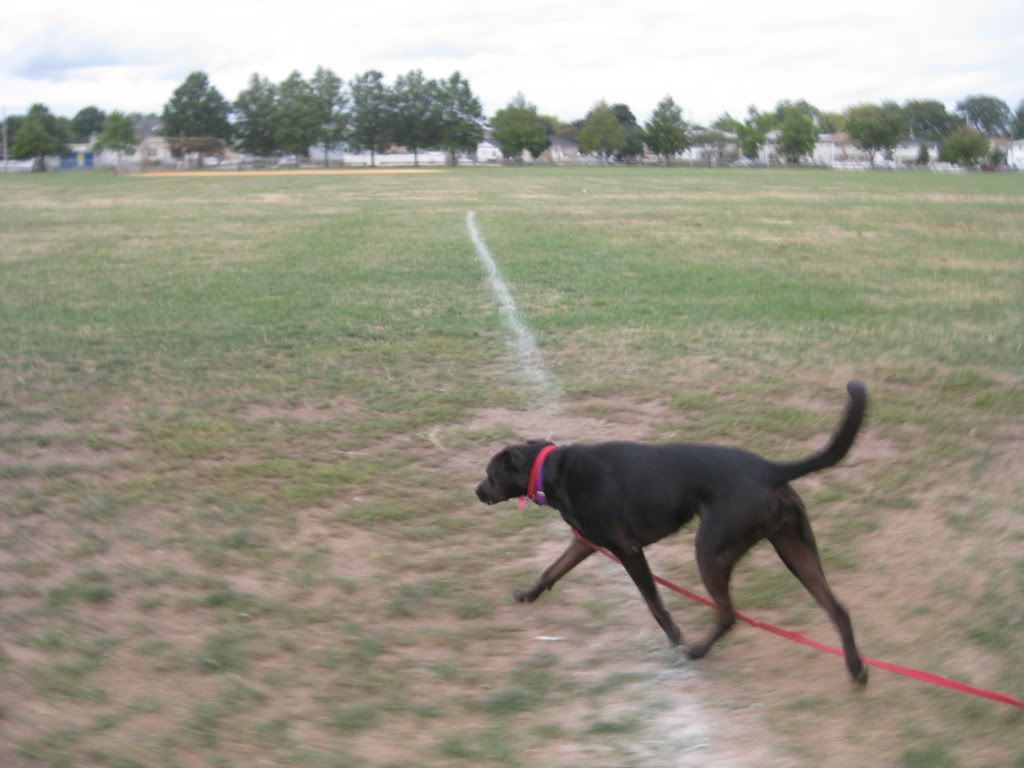
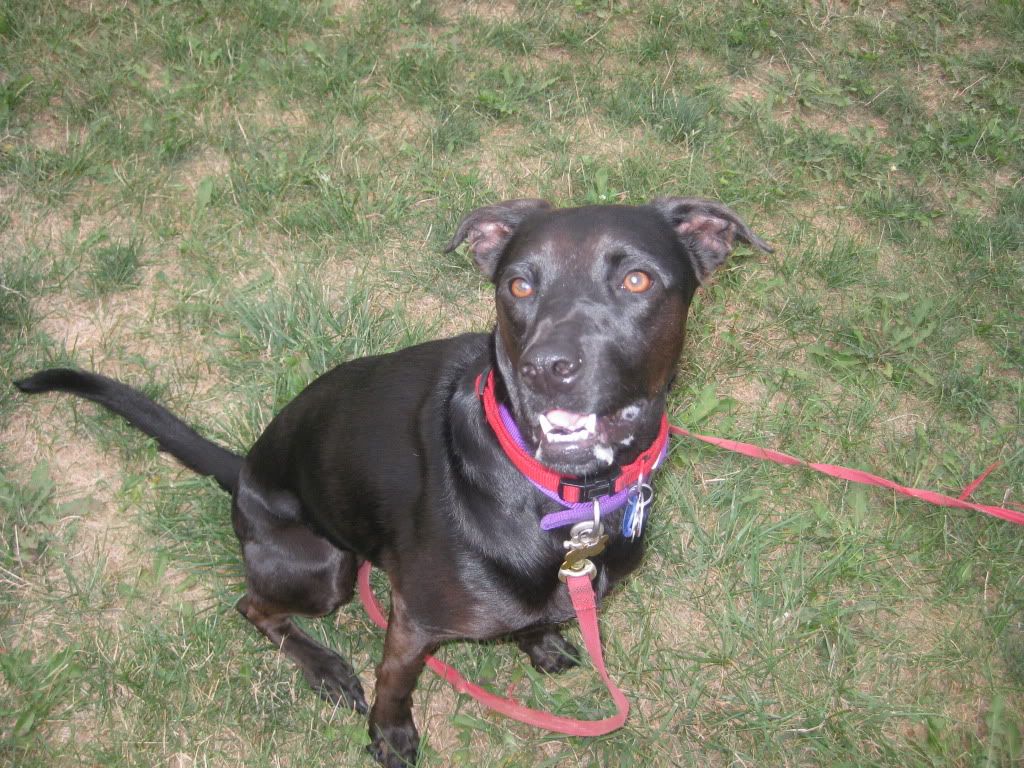
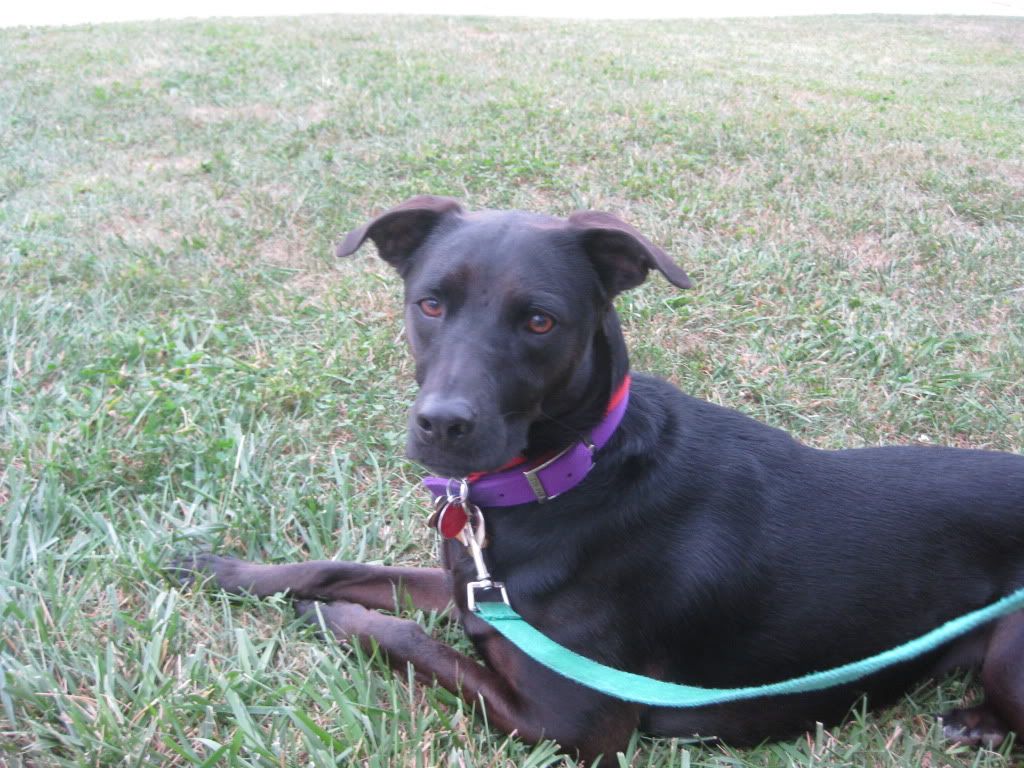


25 comments:
What a great post!
Maybe you need to get them started on agilities ;=)
Glad your internship is going well. I'm afraid of babies too. I'm 34 and I've held only 2 babies... and the last one I was tricked into it. The first one.. well he graduated college recently.
The racing greyhounds are an interesting study. They all are raised pretty much the same and live the same lifestyle for the first few years of life.... some are very friendly and bold. Others are shy and cautious. They are just born that way.
Excellent comparison! And quite the compliment to bipeds!
Tail wags,
Storm
Tricked in to it?! That sounds so much like something that someone would do to me!
Definitely agree about the genetic side of things... there are definitely dogs who are predisposed to having a certain temperament. aAll animals respond in different ways to their environment. Something that would make one nervous might not make another even blink an eye. I guess it's kind of the same reason why some people, when faced with adversity, rise beyond it and go on to be successful, and others can't overcome it and sometimes travel down the wrong path.
Awesome post!!! As a former teacher, Mom says she has used some of her dog training techniques many times in the classroom. Hope you find the rest of your class very rewarding.
Woos ~ Phantom, Thunder,and Ciara
Great post! I would tell my kids to "SIT & STAY".... a little trick I learned from my Mom!
Sometimes I still say "SIT" lol
I have been around kids for 20 years with pysch. problems, I am fascinated about it and have read numerous books on bi-polar and borderline personality disorder, it is sad when some kids are just born with the disorders, family genes can stink sometimes!
You may learn to love this! But your right, I liked your comparisons.
xxoo
Deborah
I teach PreK, so I guess I'm a little fearless. :p I've learned that we all have our own baggage to carry, no matter where we come from!
Yes yes! Great post. Are you all ok? Watching the weather news just now....looks horid. Stay safe, ok?
Hugs and snaggle-tooth kisses,
Sierra Rose
WOW, you are going to be AWESOME, and it sounds like it will be really interesting. I personally think that dog training is really such a good training ground for understanding helping people change behavior!!! Knowing how patient you are, what a good combo, ;-)
Very cool! I've been thinking for awhile how similar dog training is to child raising. The out of control dogs are usually owned by the people who have out of control kids.
I'm so glad that you admitted to not being a "kid person". When I tell people that (and it's not like I say it rudely, or in front of their kids or something) they look at me like I'm the devil reincarnated. I'm also with you on months-olds. They're like a different species entirely. Not even a different species, a different phylum.
When we were potty training my brother (oh, an example of how non-kid I am? I keep referring to it as housebreaking), we "trained him" using M&Ms. Whenever anyone went to the bathroom on the toilet, we'd get an M&M. Those were good times.
Great post!
I totally agree with you, raising kids and dogs it's basically the same! It's a shame that some people take that as an insult!
I love this post - your analysis is fascinating.
It especially hit home for me because I had a long talk with my vet yesterday who is 90% sure that R is clinically obsessive-compulsive. If we end up with this diagnosis, there's a long list of behavioral changes that we'll have to work on, plus trying a drug to calm the obsessions a little.
It's really interesting to think about the human-dog similarities and differences. My experience is the same as yours - structure is SO important to helping a dog feel comfortable. But, for an obsessive dog, even more is needed.
In any case, I liked your post!
My Old Girl has said the same thing--just not nearly as eloquently!
Great post, Sam! I'll never forget being asked how I got my son to be so well behaved. It was simple, I raised him with my dogs. Until he was 6ish, (the age of reason?) He could sit, stay and heel with the best of them!
We think you hit the nail right on the head... Keep up the good work...
Big Sloppy Kisses
Gus, Louie and Callie
Oh you are SOOOOOO right! Good thing you have all this experience that you can use. Though I think having them start agility (while fun) wouldn't work out so well. LOL
So true. I worked for 2 years with elementary aged kids, and before i had that job i felt the exact same as you- couldnt relate to kids and all that, they always thought i was weird and boring haha! I will tell you that because i worked with them, i have a COMPLETELY different outlook on them (much of what you were saying, so true!) and they look at me completely different too.i was so excited the first time i realized how easy it could be to relate to them. They basically just want to be treated like a genuine person (of course!) and i also learned something so helpful- most of the time when a kid asks you a question, they arent looking for some deep crazy complex answer that you'd give an adult, but rather, a simple answer will do in a lot of cases. Little things like that helped me. And the fact that i worked with them in a school setting, so a lot of times before the class would start they'd come up and randomely tell me about their day, or ask a generic question. I would be thinking wow! Kids arent so complicated after all!
Very cool stuff! Are you majoring in psych? If you are, check out somatic psychology. I was in a grad program for somatic psych but had to pull out. I mention it because, as a body-centered therapy, I think it would be right up your alley with all your experience with dogs. It teaches the therapist (and client) to focus on their bodies in the present. Basically, cognitive therapies can get too caught up in thought process and ignore the body...you might be telling one story with your words but a different with your body language (and typically, your body tells how you're really feeling and what's really important in the present).
Sooo...you're already so good at reading dog body language. During BM with dogs, you cue your moment to moment decisions by reading your dog's body language. Som Psych does a lot of the same with people. It's cool stuff!
My mom is not a kid-person either!
But sure you have had interesting experiences with those kids!
I guess it is important to know how to motivate them.
Kisses and hugs
Lorenza
Awwww, Miss Samantha. This was just a great postie. You know what makes you such a good dog mom for Marge? And a good pawson for this internship dealie? You're Most Observant! And I think you're gonna learn lots both abouts doggies and kiddies before this is over.
Oh, and my mom isn't a kid pawson either. But she has to admit they're kinda fascinating little creatures.
Wiggles & Wags,
mayzie
Great post but I am sticking with my "I am not a kid person" mentality
Kari
http://dogisgodinreverse.com/
I have to say that my momma is not big on kids either. Master just loves them to death and keeps saying he cannot wait for something called grandchildren to show up. Not me. I will stick with grownups.
Slobbers,
Mango
I think your internship is off to a great start.
I think you have a knack for expressing some complicated ideas in easy to understand terms.
If there is a way you can use a canine comparison in your thesis you will go far.
I think your internship is off to a great start.
I think you have a knack for expressing some complicated ideas in easy to understand terms.
If there is a way you can use a canine comparison in your thesis you will go far.
It may not be popular with the parents of young children, but I've always thought there's not much difference between young children and young animals of other species and they all need pretty much the same handling.
Post a Comment